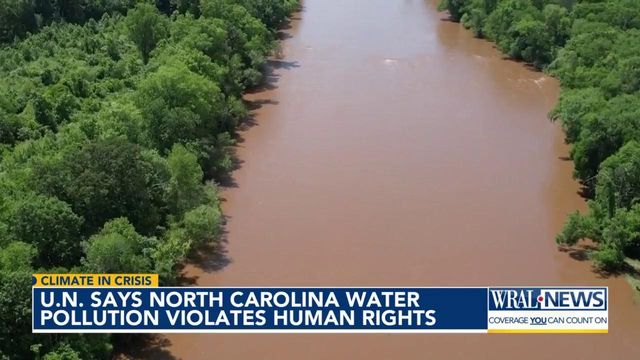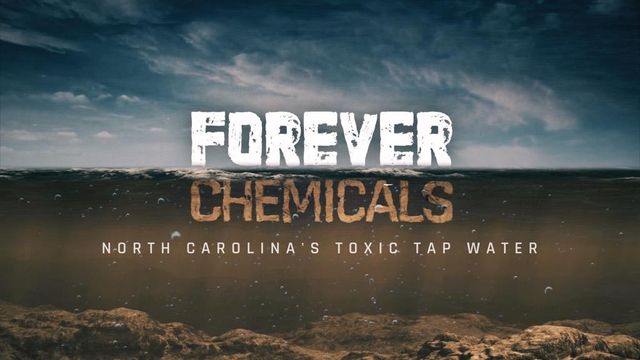UN says DuPont and Chemours violated human rights in NC, contributed to 'global toxic contamination problem'
DuPont and Chemours violated human rights by contaminating the environment with toxic “forever chemicals” in North Carolina, according to experts on the United Nations Human Rights Council.
Wilmington resident Emily Donovan and Dr. Marcos Orellana, a special rapporteur on toxics and human rights for the United Nations, spoke at a virtual press conference Monday about concerns that drove the declaration.
"The amount of sicknesses and illnesses happening in our region is incredibly depressing and hurtful," Donovan said.
Seven years after a chemical made at the Fayetteville Works plant known as GenX was discovered in the Cape Fear River, the U.N. issued letters to companies detailing concerns.
The declaration, issued in February, said in part, "DuPont and Chemours have produced, marketed and profited from PFAS for decades, contributing to a global toxic contamination problem."
DuPont rejected claims that it bears responsibility for the Fayetteville plant, which it spun off as part of a corporate restructuring in 2015.
Chemours stated in a letter to the U.N. that the chemicals it manufactures are essential to many industries and that it has taken actions to reduce PFAS emissions.
Orellana said the companies' actions are "extremely concerning because of disinformation spread by companies about the dumping and pollution, inadequate controls that have affected people's access to clean drinking water and is posing a range of serious health risks, because of the failure to assume responsibility by the companies in question and corporate restructuring, and because of inadequate enforcement and remediation."
Chemours is currently moving ahead with plans to expand the Fayetteville plant.
The U.N. also issued letters to state and federal regulators, saying they aren’t doing enough to hold polluters accountable.
The U.S. government has not responded.
However, the Environmental Protection Agency announced first-ever national drinking water standards for PFAS last week that will require utilities to reduce the chemicals to near-zero levels.
You can find complete and comprehensive coverage of PFAS, "forever chemicals," on WRAL.com.
Related stories
- WRAL Documentary: 'Forever Chemicals: North Carolina's Toxic Tap Water'
- UN group calls out Chemours for violating human rights, polluting the planet & lying about the danger of PFAS
- EPA reverses decision to allow Chemours to import GenX waste from the Netherlands to NC
- PFAS: 'Forever chemicals' part of widespread environmental crisis
- EPA: More drinking water systems across NC contain toxic 'forever chemicals'
- How safe is your tap water?
- 'Forever chemicals' found in central North Carolina, study finds
- New rules aim to make drinking water safer in North Carolina by removing toxic chemicals
- PFAS 'Forever chemicals' are pervasive in water worldwide, study finds
- To cut cancer risks, EPA limits pollution from chemical plants












